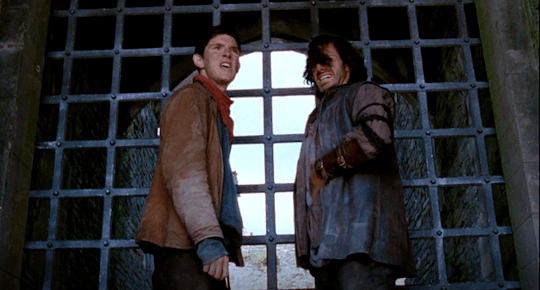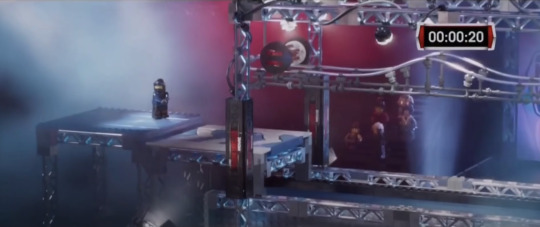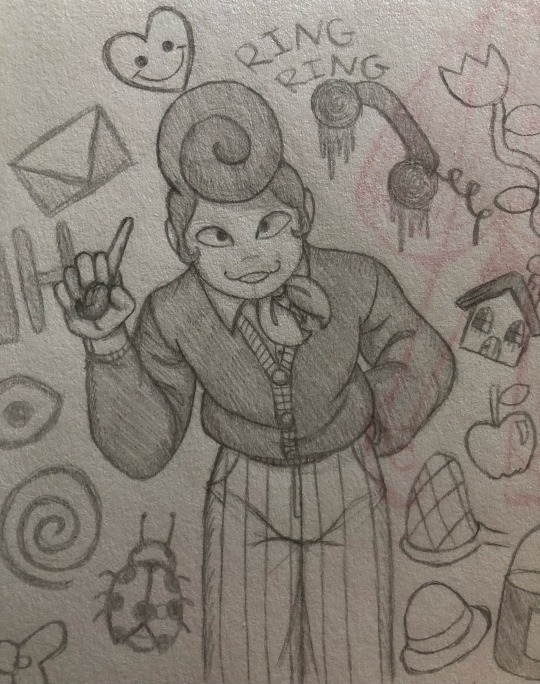#commercial projects.
Explore tagged Tumblr posts
Text
Petition to get Ryan Reynolds to play Paul Blofis in the PJO tv show. Sally Jackson deserves an exceptionally hot husband, and Ryan and Walker have such great chemistry in The Adam Project that I just want to watch them work together again. Ryan Reynolds was made to play the clueless but loving and well-meaning stepfather, and tbh if this show gets popular enough I feel like he'd be into it.
#pjo#pjo series#pjo tv show#spoilers#pjo spoilers#percy jackson#sally jackson#paul blofis#walker scobell#ryan reynolds#they are just so funny together#the adam project#disney#netflix#the fake mac and cheese commercial they did together to promote the adam project is cinema#hilarious
4K notes
·
View notes
Text
one of the things that's the most fucking frustrating for me about arguing with climate change deniers is the sheer fucking scope of how much it matters. sweating in my father's car, thinking about how it's the "hottest summer so far," every summer. and there's this deep, roiling rage that comes over me, every time.
the stakes are wrong, is the thing. that's part of what makes it not an actual debate: the other side isn't coming to the table with anything to fucking lose.
like okay. i am obviously pro gun control. but there is a basic human part of me that can understand and empathize with someone who says, "i'm worried that would lead to the law-abiding citizens being punished while criminals now essentially have a superpower." i don't agree, but i can tell the stakes for them are also very high.
but let's say the science is wrong and i'm wrong and the visible reality is wrong and every climate disaster refugee is wrong. let's say you're right, humans aren't causing it or it's not happening or whatever else. let's just say that, for fun.
so we spend hundreds of millions of dollars making the earth cleaner, and then it turns out we didn't need to do that. oops! we cleaned the earth. our children grow up with skies full of more butterflies and bees. lawns are taken over with rich local biodiversity. we don't cry over our electric bills anymore. and, if you're staunchly capitalist and i need to speak ROI with you - we've created so many jobs in developing sectors and we have exciting new investment opportunities.
i am reminded of kodak, and how they did not make "the switch" to digital photography; how within 20 years kodak was no longer a household brand. do we, as a nation, feel comfortable watching as the world makes "the switch" while we ride the laurels of oil? this boggles me. i have heard so much propaganda about how america cannot "fall behind" other countries, but in this crucial sector - the one that could actually influence our own monopolies - suddenly we turn the other cheek. but maybe you're right! maybe it will collapse like just another silicone valley dream. but isn't that the crux of capitalism? that some economies will peter out eventually?
but let's say you're right, and i'm wrong, and we stopped fracking for no good reason. that they re-seed quarries. that we tear down unused corporate-owned buildings or at least repurpose them for communities. that we make an effort, and that effort doesn't really help. what happens then? what are the stakes. what have we lost, and what have we gained?
sometimes we take our cars through a car wash and then later, it rains. "oh," we laugh to ourselves. we gripe about it over coffee with our coworkers. what a shame! but we are also aware: the car is cleaner. is that what you are worried about? that you'll make the effort but things will resolve naturally? that it will just be "a waste"?
and what i'm right. what if we're already seeing people lose their houses and their lives. what if it is happening everywhere, not just in coastal towns or equatorial countries you don't care about. what if i'm right and you're wrong but you're yelling and rich and powerful. so we ignore all of the bellwethers and all of the indicators and all of the sirens. what if we say - well, if it happens, it's fate.
nevermind. you wouldn't even wear a mask, anyway. i know what happens when you see disaster. you think the disaster will flinch if you just shout louder. that you can toss enough lives into the storm for the storm to recognize your sacrifice and balk. you argue because it feels good to stand up against "the liberals" even when the situation should not be political. you are busy crying for jesus with a bullhorn while i am trying to usher people into a shelter. you've already locked the doors, even on the church.
the stakes are skewed. you think this is some intellectual "debate" to win, some funny banter. you fuel up your huge unmuddied truck and say suck it to every citizen of that shitbird state california. serves them right for voting blue!
and the rest of us are terrified of the entire fucking environment collapsing.
#spilled ink#writeblr#i hope it is clear here that i actually very much care about equatorial countries#and that's part of what makes me so angry bc im like. climate refugees exist.#they've existed for a while!!!#and the reply is almost always ''should have thought about that before living on an island"#like fuck dude. do you need to like how people vote before ur like#your entire house shouldn't burn down each summer????#so many of these people make it their life to mock california that they think it's FUNNY#and im like. girl you should be fucking trembling. TEXAS??? ARE YOU LISTENING??#this is one of those times that like. i need to stress how fucking stupid it would be#to let trump win. bc he could have “reached across the aisle.” covid could have been#a MASSIVE commercial success. he has such a huge and bigoted and brainwashed following.#literally just a PR campaign called COWBOY UP and it's pictures of cowboys in bandanas#trump reinvisioned as the lone ranger fighting for the american people against covid. EASY SELL#and instead. companies bought him. it became political. it was not ''oh shit this is 1 enemy let's all be human''#it was ''you deserve to die.''#climate change should be GLOBAL. it should be like ''yeah i hate u but. we do all live here''#i don't have to LIKE my group members to do well on a team project bc we are ALL getting graded.#is that simple enough of an under-explaination lol
3K notes
·
View notes
Text
Surveillance pricing

THIS WEEKEND (June 7–9), I'm in AMHERST, NEW YORK to keynote the 25th Annual Media Ecology Association Convention and accept the Neil Postman Award for Career Achievement in Public Intellectual Activity.

Correction, 7 June 2024: The initial version of this article erroneously described Jeffrey Roper as the founder of ATPCO. He benefited from ATPCO, but did not co-found it. The initial version of this article called ATPCO "an illegal airline price-fixing service"; while ATPCO provides information that the airlines use to set prices, it does not set prices itself, and while the DOJ investigated the company, they did not pursue a judgment declaring the service to be illegal. I regret the error.
Noted anti-capitalist agitator Adam Smith had it right: "People of the same trade seldom meet together, even for merriment and diversion, but the conversation ends in a conspiracy against the public, or in some contrivance to raise prices."
Despite being a raving commie loon, Smith's observation was so undeniably true that regulators, policymakers, and economists couldn't help but acknowledge that it was true. The trustbusting era was defined by this idea: if we let the number of companies in a sector get too small, or if we let one or a few companies get too big, they'll eventually start to rig prices.
What's more, once an industry contracts corporate gigantism, it will become too big to jail, able to outspend and overpower the regulators charged with reining in its cheating. Anyone who believes Smith's self-evident maxim had to accept its conclusion: that companies had to be kept smaller than the state that regulated them. This wasn't about "punishing bigness" – it was the necessary precondition for a functioning market economy.
We kept companies small for the same reason that we limited the height of skyscrapers: not because we opposed height, or failed to appreciate the value of a really good penthouse view – rather, to keep the building from falling over and wrecking all the adjacent buildings and the lives of the people inside them.
Starting in the neoliberal era – Carter, then Reagan – we changed our tune. We liked big business. A business that got big was doing something right. It was perverse to shut down our best companies. Instead, we'd simply ban big companies from rigging prices. This was called the "consumer welfare" theory of antitrust. It was a total failure.
40 years later, nearly every industry is dominated by a handful of companies, and these companies price-gouge us with abandon. Worse, they use their gigantic ripoff winnings to fill war-chests that fund the corruption of democracy, capturing regulators so that they can rip us off even more, while ignoring labor, privacy and environmental law and ducking taxes.
It turns out that keeping gigantic, opaque, complex corporations honest is really hard. They have so many ways to shuffle money around that it's nearly impossible to figure out what they're doing. Digitalization makes things a million times worse, because computers allow businesses to alter their processes so they operate differently for every customer, and even for every interaction.
This is Dieselgate times a billion: VW rigged its cars to detect when they were undergoing emissions testing and switch to a less polluting, more compliant mode. But when they were on the open road, they spewed lethal quantities of toxic gas, killing people by the thousands. Computers don't make corporate leaders more evil, but they let evil corporate leaders execute far more complex and nefarious plans. Digitalization is a corporate moral hazard, making it just too easy and tempting to rig the game.
That's why Toyota, the largest car-maker in the world, just did Dieselgate again, more than a decade later. Digitalization is a temptation no giant company can resist:
https://www.bbc.com/news/articles/c1wwj1p2wdyo
For forty years, pro-monopoly cheerleaders insisted that we could allow companies to grow to unimaginable scale and still prevent cheating. They passed rules banning companies from explicitly forming agreements to rig prices. About ten seconds later, new middlemen popped up offering "information brokerages" that helped companies rig prices without talking to one another.
Take Agri Stats: the country's hyperconcentrated meatpacking industry pays Agri Stats to "consult on prices." They provide Agri Stats with a list of their prices, and then Agri Stats suggests changes based on its analysis. What does that analysis consist of? Comparing the company's prices to its competitors, who are also Agri Stats customers:
https://pluralistic.net/2023/10/04/dont-let-your-meat-loaf/#meaty-beaty-big-and-bouncy
In other words, Agri Stats finds the highest price for each product in the sector, then "advises" all the companies with lower prices to raise their prices to the "competitive" level, creating a one-way ratchet that sends the price of food higher and higher.
More and more sectors have an Agri Stats, and digitalization has made this price-gouging system faster, more efficient, and accessible to sectors with less concentration. Landlords, for example, have tapped into Realpage, a "data broker" that the same thing to your rent that Agri Stats does to meat prices. Realpage requires the landlords who sign up for its service to accept its "recommendations" on minimum rents, ensuring that prices only go up:
https://popular.info/p/feds-raid-corporate-landlord-escalating
Writing for The American Prospect, Luke Goldstein lays out the many ways in which these digital intermediaries have supercharged the business of price-rigging:
https://prospect.org/economy/2024-06-05-three-algorithms-in-a-room/
Goldstein identifies a kind of patient zero for this ripoff epidemic: Jeffrey Roper, a former Alaska Air exec who benefited from a service that helps airlines set prices. ATPCO was investigated by the DOJ in the 1990s, but the enforcers lost their nerve and settled with the company, which agreed to apply some ornamental fig-leafs to its collusion-machine. Even those cosmetic changes were seemingly a bridge too far Roper, who left the US.
But he came back to serve as Realpage's "principal scientist" – the architect of a nationwide scheme to make rental housing vastly more expensive. For Roper, the barrier to low rents was empathy: landlords felt stirrings of shame when they made shelter unaffordable to working people. Roper called these people "idiots" who sentimentality "costs the whole system."
Sticking a rent-gouging computer between landlords and the people whose lives they ruin is a classic "accountability sink," as described in Dan Davies' new book "The Unaccountability Machine: Why Big Systems Make Terrible Decisions – and How The World Lost its Mind":
https://profilebooks.com/work/the-unaccountability-machine/
It's a form of "empiricism washing": if computers are working in the abstract realm of pure numbers, they're just moving the objective facts of the quantitative realm into the squishy, imperfect qualitative world. Davies' interview on Trashfuture is excellent:
https://trashfuturepodcast.podbean.com/e/fire-sale-at-the-accountability-store-feat-dan-davies/
To rig prices, an industry has to solve three problems: the problem of coming to an agreement to fix prices (economists call this "the collective action problem"); the problem of coming up with a price; and the problem of actually changing prices from moment to moment. This is the ripoff triangle, and like a triangle, it has many stable configurations.
The more concentrated an industry is, the easier it is to decide to rig prices. But if the industry has the benefit of digitalization, it can swap the flexibility and speed of computers for the low collective action costs from concentration. For example, grocers that switch to e-ink shelf tags can make instantaneous price-changes, meaning that every price change is less consequential – if sales fall off after a price-hike, the company can lower them again at the press of a button. That means they can collude less explicitly but still raise prices:
https://pluralistic.net/2024/03/26/glitchbread/#electronic-shelf-tags
My name for this digital flexibility is "twiddling." Businesses with digital back-ends can alter their "business logic" from second to second, and present different prices, payouts, rankings and other key parts of the deal to every supplier or customer they interact with:
https://pluralistic.net/2023/02/19/twiddler/
Not only does twiddling make it easier to rip off suppliers, workers and customers, it also makes these crimes harder to detect. Twiddling made Dieselgate possible, and it also underpinned "Greyball," Uber's secret strategy of refusing to send cars to pick up transportation regulators who would then be able to see firsthand how many laws the company was violating:
https://www.nytimes.com/2017/03/03/technology/uber-greyball-program-evade-authorities.html
Twiddling is so easy that it has brought price-fixing to smaller companies and less concentrated sectors, though the biggest companies still commit crimes on a scale that put these bit-players to shame. In The Prospect, David Dayen investigates the "personalized pricing" ripoff that has turned every transaction into a potential crime-scene:
https://prospect.org/economy/2024-06-04-one-person-one-price/
"Personalized pricing" is the idea that everything you buy should be priced based on analysis of commercial surveillance data that predicts the maximum amount you are willing to pay.
Proponents of this idea – like Harvard's Pricing Lab with its "Billion Prices Project" – insist that this isn't a way to rip you off. Instead, it lets companies lower prices for people who have less ability to pay:
https://thebillionpricesproject.com/
This kind of weaponized credulity is totally on-brand for the pro-monopoly revolution. It's the same wishful thinking that led regulators to encourage monopolies while insisting that it would be possible to prevent "bad" monopolies from raising prices. And, as with monopolies, "personalized pricing" leads to an overall increase in prices. In econspeak, it is a "transfer of wealth from consumer to the seller."
"Personalized pricing" is one of those cuddly euphemisms that should make the hair on the back of your neck stand up. A more apt name for this practice is surveillance pricing, because the "personalization" depends on the vast underground empire of nonconsensual data-harvesting, a gnarly hairball of ad-tech companies, data-brokers, and digital devices with built-in surveillance, from smart speakers to cars:
https://pluralistic.net/2024/03/12/market-failure/#car-wars
Much of this surveillance would be impractical, because no one wants their car, printer, speaker, watch, phone, or insulin-pump to spy on them. The flexibility of digital computers means that users always have the technical ability to change how these gadgets work, so they no longer spy on their users. But an explosion of IP law has made this kind of modification illegal:
https://locusmag.com/2020/09/cory-doctorow-ip/
This is why apps are ground zero for surveillance pricing. The web is an open platform, and web-browsers are legal to modify. The majority of web users have installed ad-blockers that interfere with the surveillance that makes surveillance pricing possible:
https://doc.searls.com/2023/11/11/how-is-the-worlds-biggest-boycott-doing/
But apps are a closed platform, and reverse-engineering and modifying an app is a literal felony – several felonies, in fact. An app is just a web-page skinned with enough IP to make it a felony to modify it to protect your consumer, privacy or labor rights:
https://pluralistic.net/2024/05/07/treacherous-computing/#rewilding-the-internet
(Google is leading a charge to turn the web into the kind of enshittifier's paradise that apps represent, blocking the use of privacy plugins and proposing changes to browser architecture that would allow them to felonize modifying a browser without permission:)
https://pluralistic.net/2023/08/02/self-incrimination/#wei-bai-bai
Apps are a twiddler's playground. Not only can they "customize" every interaction you have with them, but they can block you (or researchers seeking to help you) from recording and analyzing the app's activities. Worse: digital transactions are intimate, contained to the palm of your hand. The grocer whose e-ink shelf-tags flicker and reprice their offerings every few seconds can be collectively observed by people who are in the same place and can start a conversation about, say, whether to come back that night a throw a brick through the store's window to express their displeasure. A digital transaction is a lonely thing, atomized and intrinsically shielded from a public response.
That shielding is hugely important. The public hates surveillance pricing. Time and again, through all of American history, there have been massive and consequential revolts against the idea that every price should be different for every buyer. The Interstate Commerce Commission was founded after Grangers rose up against the rail companies' use of "personalized pricing" to gouge farmers.
Companies know this, which is why surveillance pricing happens in secret. Over and over, every day, you are being gouged through surveillance pricing. The sellers you interact with won't tell you about it, so to root out this practice, we have to look at the B2B sales-pitches from the companies that sell twiddling tools.
One of these companies is Plexure, partly owned by McDonald's, which provides the surveillance-pricing back-ends for McD's, Ikea, 7-Eleven, White Castle and others – basically, any time a company gives you a hard-sell to order via its apps rather than its storefronts or its website, you should assume you're getting twiddled, hard.
These companies use the enshittification playbook to trap you into using their apps. First, they offer discounts to customers who order through their apps – then, once the customers are fully committed to shopping via app, they introduce surveillance pricing and start to jack up the prices.
For example, Plexure boasts that it can predict what day a given customer is getting paid on and use that information to raise prices on all the goods the customer shops for on that day, on the assumption that you're willing to pay more when you've got a healthy bank balance.
The surveillance pricing industry represents another reason for everything you use to spy on you – any data your "smart" TV or Nest thermostat or Ring doorbell can steal from you can be readily monetized – just sell it to a surveillance pricing company, which will use it to figure out how to charge you more for everything you buy, from rent to Happy Meals.
But the vast market for surveillance data is also a potential weakness for the industry. Put frankly: the commercial surveillance industry has a lot of enemies. The only thing it has going for it is that so many of these enemies don't know that what's they're really upset about is surveillance.
Some people are upset because they think Facebook made Grampy into a Qanon. Others, because they think Insta gave their kid anorexia. Some think Tiktok is brainwashing millennials into quoting Osama bin Laden. Some are upset because the cops use Google location data to round up Black Lives Matter protesters, or Jan 6 insurrectionists. Some are angry about deepfake porn. Some are angry because Black people are targeted with ads for overpriced loans or colleges:
https://www.theregister.com/2024/06/04/meta_ad_algorithm_discrimination/
And some people are angry because surveillance feeds surveillance pricing. The thing is, whatever else all these people are angry about, they're all angry about surveillance. Are you angry that ad-tech is stealing a 51% share of news revenue? You're actually angry about surveillance. Are you angry that "AI" is being used to automatically reject resumes on racial, age or gender grounds? You're actually angry about surveillance.
There's a very useful analogy here to the history of the ecology movement. As James Boyle has long said, before the term "ecology" came along, there were people who cared about a lot of issues that seemed unconnected. You care about owls, I care about the ozone layer. What's the connection between charismatic nocturnal avians and the gaseous composition of the upper atmosphere? The term ecology took a thousand issues and welded them together into one movement.
That's what's on the horizon for privacy. The US hasn't had a new federal consumer privacy law since 1988, when Congress acted to ban video-store clerks from telling the newspapers what VHS cassettes you were renting:
https://en.wikipedia.org/wiki/Video_Privacy_Protection_Act
We are desperately overdue for a new consumer privacy law, but every time this comes up, the pro-surveillance coalition defeats the effort. but as people who care about conspiratorialism, kids' mental health, spying by foreign adversaries, phishing and fraud, and surveillance pricing all come together, they will be an unbeatable coalition:
https://pluralistic.net/2023/12/06/privacy-first/#but-not-just-privacy
Meanwhile, the US government is actually starting to take on these ripoff artists. The FTC is working to shut down data-brokers:
https://pluralistic.net/2023/08/16/the-second-best-time-is-now/#the-point-of-a-system-is-what-it-does
The FBI is raiding landlords to build a case against Frontpage and other rent price-fixers:
https://popular.info/p/feds-raid-corporate-landlord-escalating
Agri Stats is facing a DoJ lawsuit:
https://www.nationalhogfarmer.com/market-news/agri-stats-loses-motions-to-transfer-dismiss-in-doj-antitrust-case
Not every federal agency has gotten the message, though. Trump's Fed Chairman, Jerome Powell – whom Biden kept on the job – has been hiking interest rates in a bid to reduce our purchasing power by making millions of Americans poorer and/or unemployed. He's doing this to fight inflation, on the theory that inflation is being cause by us being too well-off, and therefore trying to buy more goods than are for sale.
But of course, interest rates are inflationary: when interest rates go up, it gets more expensive to pay your credit card bills, lease your car, and pay a mortgage. And where we see the price of goods shooting up, there's abundant evidence that this is the result of greedflation – companies jacking up their prices and blaming inflation. Interest rate hawks say that greedflation is impossible: if one company raises its prices, its competitors will swoop in and steal their customers with lower prices.
Maybe they would do that – if they didn't have a toolbox full of algorithmic twiddling options and a deep trove of surveillance data that let them all raise prices together:
https://prospect.org/blogs-and-newsletters/tap/2024-06-05-time-for-fed-to-meet-ftc/
Someone needs to read some Adam Smith to Chairman Powell: "People of the same trade seldom meet together, even for merriment and diversion, but the conversation ends in a conspiracy against the public, or in some contrivance to raise prices."

If you'd like an essay-formatted version of this post to read or share, here's a link to it on pluralistic.net, my surveillance-free, ad-free, tracker-free blog:
https://pluralistic.net/2024/06/05/your-price-named/#privacy-first-again

Image: Cryteria (modified) https://commons.wikimedia.org/wiki/File:HAL9000.svg
CC BY 3.0 https://creativecommons.org/licenses/by/3.0/deed.en
#pluralistic#david dayen#the american prospect#surveillance advertising#commercial surveillance#predictive pricing#monopolism#monopolies#antitrust#unfair and deceptive method of competition#ftc act Section 5#ftca5#ripoffs#surveillance#twiddling#ip#apps#apps are shit#ziprecruiter#personalized pricing#price gouging#just and reasonable#interstate commerce act#one person one price#surveillance pricing#privacy first#billion prices project#ecommerce#ninetailed#cortado group
423 notes
·
View notes
Text
the woman who co-hosted the dr3 wines event with daniel mentions in her instagram story that they "didn't chat much about f1" but "his prospects are looking good. he has many projects on the go...and we'll be seeing him resurface pretty quickly."
#daniel ricciardo#👀👀👀👀👀👀👀#do i think in terms of projects she means commercial projects and not racing projects.........yes.#but still at least i get to see his face and squeeze his cheeks through my screen#dr
109 notes
·
View notes
Text




my paintings for the simulacrum tumblers in the corru.observer merch store! i am very happy that i got to make official corru merch hehe

this is what the tumbler looks like (tiny akizet is not included in the purchase unfortunately)
129 notes
·
View notes
Text

Commercial break
#spy x family fanart#spy x family#sxf#sxf fanart#twiyor#loidyor#loid forger#yor forger#fluff#snuggles on the couch bc im too single for my own good#otp#its not projection i havent cried at commercials as of late#二次創作#fanart
308 notes
·
View notes
Text

Thalassophobia - Page 1/4
Extremely excited to finally be posting this comic I've had in the works for months now! Featuring: a catgirl and a fishgirl forming an unlikely bond... Page 2 will be coming out next week <3
2 3 4
#solstrix draws#solstrix makes comics#artists on tumblr#monster high#my art#mh#toralei stripe#lagoona blue#clawdeen wolf#draculaura#toragoona#sort of....#btw the noose pullchains on the toilets are like. a canon blink and you'll miss it detail from the g1 show#this project forced me to put way too much thought into what the bathrooms at monster high look like#took heavy inspo from the 2d animations in the first toy commercial#and then filled in the gaps with the g1 webisodes bathrooms
33 notes
·
View notes
Note
How likely do you think it is that Mario and Luigi Brothership has any sort of direct reference to the movie, and how would you feel if they actually did that?
I wouldn't bank on a direct reference, but I know that Nintendo and Illumination worked pretty close together on the film, with Shigeru Miyamoto himself acting as co-producer. Given the huge success of The Super Mario Bros. Movie, I'm thinking Nintendo is taking measures to very subtly make the games and the film reflect each other.
What happened with the cover of Princess Peach Showtime comes to mind:

Say what you will about the design change in and of itself, but you can't deny that whatever happened there was influenced by the movie.
I think something similar (but much more subtle) might have happened here:


It's easy to see how that pose might have been based on that shot from the film, but it's also nothing so drastic that people who are only familiar with the games are going to feel out of the loop. Or perhaps it's just a coincidence. Who knows, really.
If there does end up being a direct reference to the movie in "Mario and Luigi: Brothership"? I'd be thrilled. The Super Mario Bros. Movie is the thing that got me hyperfixated in the first place, so I'm always going to be on board with references to it.
#pixiedustandfairypowers#askbox#The movie and game characterizations are not going to be 1 for 1#because there's always going to be different people working on different projects#but I think Nintendo is feeling out what people liked about the characterizations in the movie#and trying to implement them into their games. Create a teeny tiny bit of cohesion#because let's be real The Mario Movie... while fun and entertaining and beautifully animated... is an enormous game commercial#I mean it's a little deeper than that but it's also an enormous game commercial#so Nintendo's going to try to throw bones to the new fans drawn in by the movie#while keeping long-time gamers happy at the same time#it's a balancing act#but that's just my theory I know nothing about marketing really I'm just saying words at this point
49 notes
·
View notes
Text
Who gave the fable and folly network the AUDACITY to have so many good shows?? Like??
#podcast fandom#podcasts#this is about amelia midnight burger deseet skies looters and wolf 359#no bc why do they have so many bangers#fable and folly network#im looking forward to listening to sorry about the murders#podcast posting#amelia project#midnight burger#desert skies#looterspod#they have so many intriguing commercials too#wolf 359
102 notes
·
View notes
Text
i wanna make a post thats like "good life series everyone were done here i think this ones the last one" but im honestly surprised that i stopped feeling that way! the vibes were really strong to me at the end of secret life and i was reallyyy skeptical when wild life was announced but i was really positively surprised .honestly loving this new less-vanilla-y direction because this can be expanded and changed however they want and theres definitely potential for more seasons now, while i felt like 'hardcore with slightly different lives' wouldve started to get old right about now (unless they like. just reused a previous gimmick but thats not as interesting yk). were so back i think honestly
#thoughts#wild life smp#trafficblr#i fully get why some people are disappointed bdw its perfectly valid imo but im glad things are going this way#becuse (at least to me) the alternative is either no more life series or like. mildly heartless repeats#this still feels like a passion project (even if the merch and other stuff has commercialized it slightly in my eyes)#(i say looking at the snail stickers on my desk)
14 notes
·
View notes
Text


bbc merlin - 03x08 The Eye of the Phoenix
sponsored by your closest tavern
#nothing will ever beat the scenes that are filmed like bad commercials or first year film student projects#merlin rewatch#bbc merlin#03x08#merlin#gwaine#merwaine#s3
45 notes
·
View notes
Text
It's always interesting to hear about people's weird/unexpected "alternate life paths". Like, something that you could have done with your life, a job you almost took, a school you almost went to, etc - that was still actually realistic enough that it could have happened, but NOW it seems to not suit your current personality.
Like for example, I currently hate advertising (how manipulative it is, brands trying to be 'relatable', social media amplifying it to an obnoxious extreme, etc.) so much that even seeing a little ad before a youtube video is grating to even witness, but there was a point in time where I was genuinely seriously considering going into marketing/making commercials as a career lol. Or like, I have a relative who was very inclined to be a pastor when they were younger, even though today they're a super strong atheist, etc. etc.
#BECAUSE I knew I really liked filming and editing things and doing set design and costume design (from having done little bits of that#here and there in media classes and my own stuff - i used to be a lot more into making videos than I am now). BUT I was always thinking#that a movie is WAAY to big and long. even a short film. So I was trying to think of ways I could still like#have the fun of scouting locations to film and dressing up actors and etc. etc. without it having to be a Huge Million Dollar Production#on tv show or movie level. SO then I was thinking about like... just doing commercials. Or music videos. Like shorter things where I still#get the fun of the filming and everything but it's less of an intensive long term project.#So there is an alternate version of me (I suppose if i somehow did not end up having physical and mental health issues#as badly somehow.. or like.. randomly came into wealth and was able to pay my way through a nice college despite missing#days constantly being out because I'm sick or something lol) that works in some corporate advertising office coming up with commercials#and directing or filming them or doing the sets for them or something in that general vicinity.#I also was considering being a corporate psychologist. or whatever its called.. oh from google:#''Industrial and organizational (I/O) psychologists study and assess individual group and organization dynamics in the workplace''#I don't think I even knew what the job entailed. I was at the time just thinking like.. the type of person that comes into a business offic#and gives everyone personality assessments or does MBTI or big-5 testing crap for whatever reason that some businesses get that#done for people. Really i just wanted to be in a Corporate Big Office setting yet still do psychology. Because I used to be really fixated#on living in a big city. Like the ideas of everything being walkable. picking up a coffee in the morning. walking to my job in a Big#Skyscraper Building. people watching in a huge hotel lobby for lunch. flying frequently (I love airplanes and airports aesthetically).#living in an apartment with a giant window overlooking the city. etc. etc. BUT that was before i had really BEEN to a city. Then I actually#hung around a city a few times and went places and I was like... AUGh... The Sensory Overwhelm.. cars people lights loudness noise scary#everything happening all at once. etc. etc. (though even when I wanted to live in a city i NEVER strove for the Night Life. when i say I#enjoy city imagery I mean like... in the day time. Many people who like cities talk about The Night Life and post pictures of cities all#lit up at night and clubs and dancing and restaurants. none of that EVER appealed to me. perhaps a sign I am not a real city person. Like#I am NOT standing in a crowded bar full of loud people in the middle of the night lol.. get AWAY from me!!) but I do adore the#architecture of like bright white clean sterile modern spaces like huge airport lobbies or malls or etc. I think thats what reminded me of#city and what I liked about the idea of that life. Like I always LOVED the layout of schools and hospitals and trainstations and public#transport in general. Though even then I knew enough that I would not be a good architect/city planner. so I guess my adoration for those#spaces was merely to be channeled into LIVING there. but then I realized I didn't even really want to do that that much. I mean I still#definitely aim to live NEAR a city. like the little areas outside of it. I would never live in a rural place 4 hours from anything. I liter#ally just COULDNT since I need close access to hospitals sometimes lol. But I used to want to live in the CENTER of citites like high rise#condo. and now I'm like.... eh....... perhaps a smaller quieter walkable space nearby lol.. ANYWAY.. alternate me in my Business Suit eheh
12 notes
·
View notes
Text


yo, what up fam back in the lab cooking up nightmares
anyway jj might have thick braids and far more clownish attire now, dw about it. They just felt a little silly. I promise. It was only a little silly.
Let's not talk about the very real pipeline of mixed girlie pop terror I just put it through or how the evolution from straight hair straight pal to curly-headed clown monster was very much just my own. we are not talking about it talking killed my grandma okay? /silly
#im lying#it was very silly#but ay now they got that thick hair maintained#jj. soon to be found in a shea moisture commercial#jj. king of pink hair lotion#jj. wears a sanrio bonnet to bed#im not projecting you are#paranoia eater (jj)
5 notes
·
View notes
Text
screencaps from this trailer breakdown video











here is a recording of the whole commercial, but in very low quality
if anyone knows of the existence of a good recording of the whole clip. dont be shy
#ninjago#tlnm#the lego ninjago movie#the movie theatre commercial i was looking for a while ago was surprisingly easy to get ahold of in hd#it's even in the ninjago media project drive#but this one.... i fear will be harder#i left a comment on the 5 year old trailer breakdown video im desperate
85 notes
·
View notes
Text



I didn’t have much to offer that are worthy to share, so here are a couple of Wallies and one, singular Marina!
Reblogs are appreciated!
#i still watch that remederem commercial occasionally bc my god wally looked so adorable#whoever made that animation deserves a reward#also experimenting with my oc's design a bit bc i want to give her a more dynamic silhouette#my art#welcome home#welcome home horror project#welcome home puppet show#welcome home arg#welcome home fanart#welcome home oc#welcome home persona#wally darling#marina del phis#sketch#wyrm’s art
36 notes
·
View notes
Text
Actually I should make really stupid art-related posts for fun. Purple multiply layer is for FOOLS and IDIOT CHARLATANS. If someone doesn't profess to hauve covid in your notes is it even worth it. Hey guys HOW DOES COLOR THEORY WORK 😱
#color theory is a fuck-around-and-find-out field. this is the fun of it.#in my next project i wanna work with blue light and yellow shadows because i almost always have the reverse w/ warm light cold shadows#and it'll be FUN. i'll be sitting there squinting at it adjusting things until it feels right. me-time about making things right--perfect.#purple multiply layer is actually perfectly fine by the way#also the middle statement is about how easily-commercialized (to fandom) outcomes are prioritized over enjoying Making stuff :v:#obviously not getting to share your art with people sucks. it's important. but learn to love the action of it foremost
5 notes
·
View notes